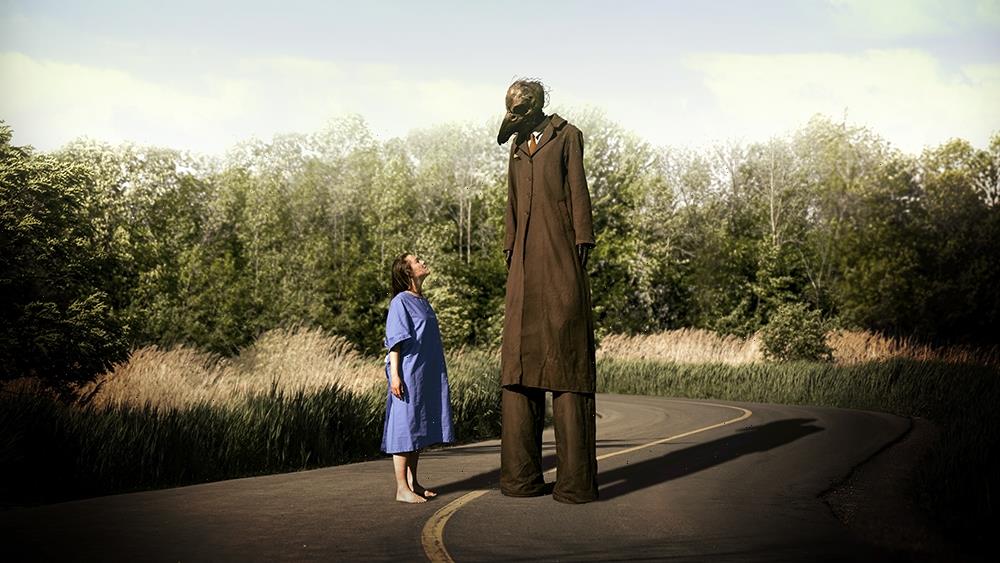
Florence Longpré Scores a Triple, Stars in Clever Drama ‘Audrey’s Back’ at Canneseries
04/04/2022Québécois auteur Florence Longpré has scored a triple, landing her newest series “Aubrey’s Back” in the main competition at Canneseries after enjoying selections at both the Berlinale Series Market and Series Mania with her tragic comedy “Last Summer of the Raspberries.” Written during the COVID-19 lockdowns, the new series follows Audrey, played by Longpré, a young woman emerging from a decades long coma following a traumatic brain injury.
The series was co-authored by Guillaume Lambert (“Adulthood”) and their collaboration carries the story forward in this heartfelt journey of rediscovery.
The first Canadian series selected in long form competition at Canneseries, “Audrey’s Back” is produced by Pixcom’s Nicola Merola, Charles Lafortune, and Marie-Ève Pelletier. Former collaborator Guillaume Lonergan (“Emilie,” “Can You Hear Me”) directs the series, having also directed Lambert’s series “Adulthood,” which was nominated for the International Emmys. Original score is by Alexandra Stréliski. Beta Film will handle international distribution for the series, as well as one other series in competition: Spain’s “El Inmortal – Gangs of Madrid.”
Variety spoke to Longpré and Lambert ahead of the series’ premiere at Canneseries.
How did this series come to life? And what was the writing dynamic like?
Florence Longpré: The work with Guillaume was amazing. But it was difficult because there was no leader. Often there is a lead writer who makes more of the final decision, but for this project we decided that it would be both of us. So that was very difficult. But I think the result is there, because there was a lot of talking, understanding, and compromise. That’s why the result is so beautiful, I think.
Guillaume Lambert: Yeah. It was difficult for both of us to defend each scene. Florence and I are really close friends. So we can say easily that it was difficult because we love each other so much. We’re both actors. We’re both screenwriters. We really wanted to collaborate. So it was like let’s make it work. It’s going to be difficult, but let’s make it work.
How do you approach the difference between comedy and tragedy, on the page and on the screen, especially when you are both the writer and lead actor?
Florence Longpré: For me it’s the type of thing, for comedy and tragedy, it’s the same note for me. It’s a note of sincerity and fragility. And if you want too much to make it funny, for me, it doesn’t work. You have to be in the situation, in the sincerity of this situation. Well, personally for me, that’s what makes me laugh. When I can recognize myself, or the line is so well done and well said. Yeah, it comes from the situation and the feeling of the situation, like in real life. Sometimes in real life, you have a quick response to the dialogue. So it’s the same in this area.
Guillaume Lambert: I think the comedy is really close to the tragedy for the same reasons, for the same emotions. You can laugh, but you can cry, and as a writer I don’t want to, you know, put the comedy in a box and the drama in a separate box. I like to mix them both. And I think that Florence has the same way of working. I love when people say “I was bursting in tears and then I had a laugh. And then I laughed again and then I cried again!” I think this is, this is life.
Music seems to play a central role in many of your projects. What is your inspiration for placing songs and score in such a prominent way?
Florence Longpré: The music is so important. When we write the script, and I think we are the only ones in Quebec who do this, but we put the song in the script. Because we want it, and they have to begin the process. It’s a long process to have the song in the series. Sometimes it can take months, years even. With Enya, it was very complicated. But it was super easy with Arcade Fire. You never know.
The series begins with Audrey waking up from a coma following a traumatic brain injury. Florence, how did you approach playing this character?
Florence Longpré: First of all, I was very afraid about that because, uh, that was very difficult to play. It’s weird because I don’t say anything, but it was very, very difficult to not be there. To not be there was something I had to practice a lot. Before I was an actress, I worked a lot with quadriplegic people. It’s not exactly the same, but I was aware of some of the difficulty when you cannot move, when you cannot talk, and the way it can affect your emotions. So there was a real desire to be truthful and serious about this subject because there’s something so profound about waking up and being alive. When you lose the ability to talk and move, you realize how precious it is. So it was all of that that I wanted to put in this character.
Source: Read Full Article

